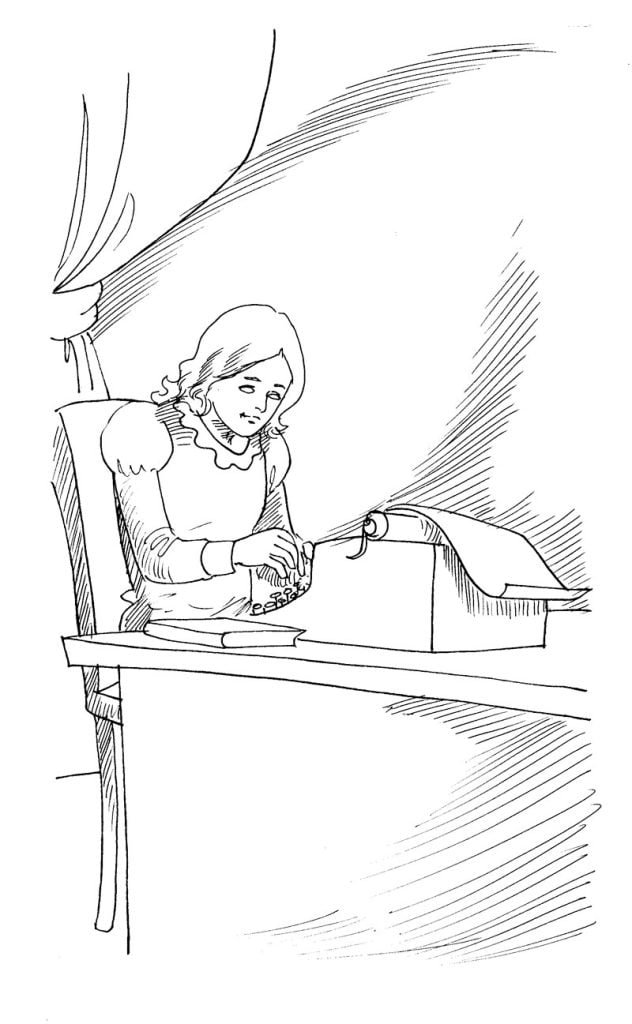Chapter 12
I remember my first day at Radcliffe. It was a day full of interest for me. I had looked forward to it for years. A potent force within me, stronger than the persuasion of my friends, stronger even than the pleadings of my heart, had impelled me to try my strength by the standards of those who see and hear. I knew that there were obstacles in the way; but I was eager to overcome them. I had taken to heart the words of the wise Roman who said, “To be banished from Rome is but to live outside of Rome.” Debarred from the great highways of knowledge, I was compelled to make the journey across country by unfrequented roads—that was all; and I knew that in college there were many bypaths where I could touch hands with girls who were thinking, loving and struggling like me.
I began my studies with eagerness. Before me I saw a new world opening in beauty and light, and I felt within me the capacity to know all things. In the wonderland of Mind I should be as free as another. Its people, scenery, manners, joys, tragedies should be living, tangible interpreters of the real world. The lecture-halls seemed filled with the spirit of the great and the wise, and I thought the professors were the embodiment of wisdom. If I have since learned differently, I am not going to tell anybody.
But I soon discovered that college was not quite the romantic lyceum I had imagined. Many of the dreams that had delighted my young inexperience became beautifully less and “faded into the light of common day.” Gradually I began to find that there were disadvantages in going to college.

I use the Hammond typewriter. I have tried many machines, and I find the Hammond is the best adapted to the peculiar needs of my work. With this machine movable type shuttles can be used, and one can have several shuttles, each with a different set of characters—Greek, French, or mathematical, according to the kind of writing one wishes to do on the typewriter. Without it, I doubt if I could go to college.
Last year, my second year at Radcliffe, I studied English composition, the Bible as English composition, the governments of America and Europe, the Odes of Horace, and Latin comedy. The class in composition was the pleasantest. It was very lively. The lectures were always interesting, vivacious, witty; for the instructor, Mr. Charles Townsend Copeland, more than any one else I have had until this year, brings before you literature in all its original freshness and power. For one short hour you are permitted to drink in the eternal beauty of the old masters without needless interpretation or exposition. You revel in their fine thoughts. You enjoy with all your soul the sweet thunder of the Old Testament, forgetting the existence of Jahweh and Elohim; and you go home feeling that you have had “a glimpse of that perfection in which spirit and form dwell in immortal harmony; truth and beauty bearing a new growth on the ancient stem of time.”
This year is the happiest because I am studying subjects that especially interest me, economics, Elizabethan literature, Shakespeare under Professor George L. Kittredge, and the History of Philosophy under Professor Josiah Royce. Through philosophy one enters with sympathy of comprehension into the traditions of remote ages and other modes of thought, which erewhile seemed alien and without reason.
While my days at Radcliffe were still in the future, they were encircled with a halo of romance, which they have lost; but in the transition from romantic to actual I have learned many things I should never have known had I not tried the experiment. One of them is the precious science of patience, which teaches us that we should take our education as we would take a walk in the country, leisurely, our minds hospitably open to impressions of every sort. Such knowledge floods the soul unseen with a soundless tidal wave of deepening thought. “Knowledge is power.” Rather, knowledge is happiness, because to have knowledge—broad, deep knowledge—is to know true ends from false, and lofty things from low. To know the thoughts and deeds that have marked man’s progress is to feel the great heart-throbs of humanity through the centuries; and if one does not feel in these pulsations a heavenward striving, one must indeed be deaf to the harmonies of life.
❒
